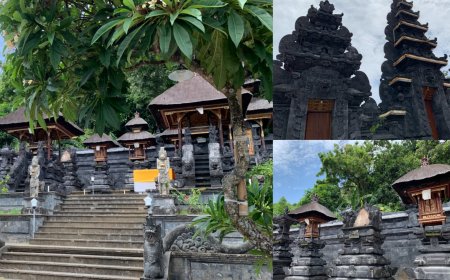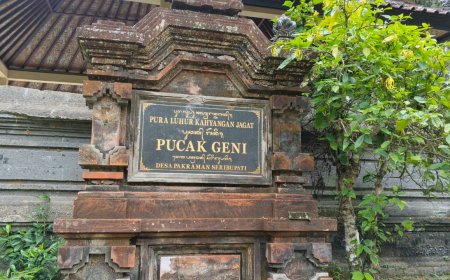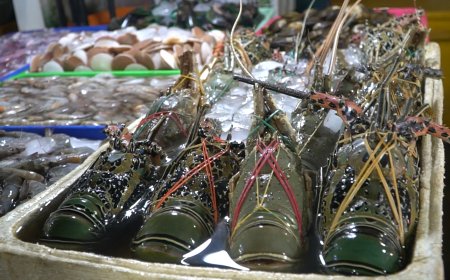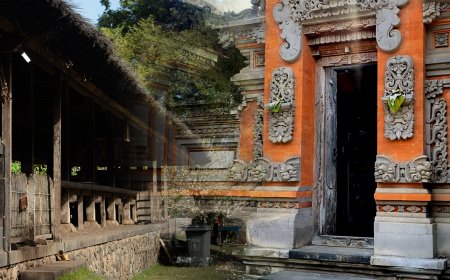Hyang Api Temple as a Meaningful Place for the Aci Keburan
Hyang Api Temple, an important temple in Bali, holds profound significance for the Hindu community. Beyond being a place of worship, it is also used to seek blessings for agriculture and livestock. The Aci Keburan tradition, unique for its lack of gambling elements, serves as an offering to the deity Agni and continues to be cherished by the Hindu community in Bali. This article unveils the cultural, spiritual, and communal values embedded in the Hyang Api Temple tradition, offering intriguing insights for readers.
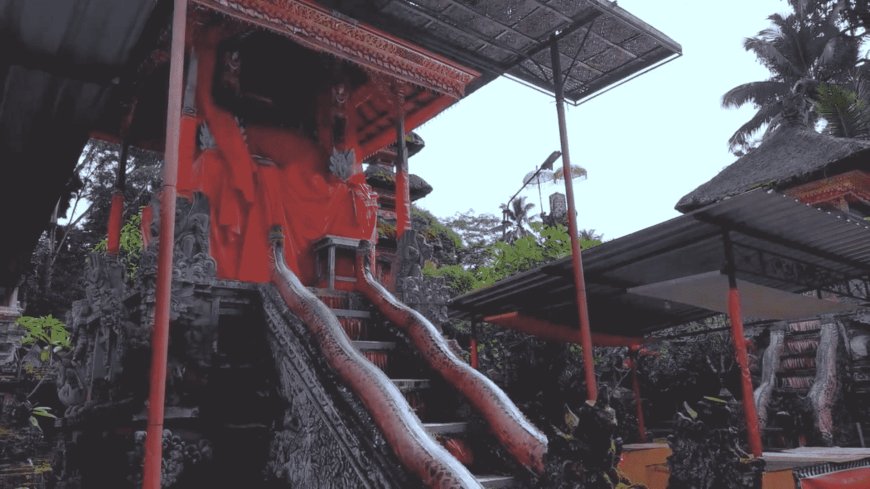
Who isn't familiar with Bali? Often referred to as the "Island of a Thousand Temples," it truly reflects the essence of Bali itself. Almost every household has a space for prayer, as do every banjar (neighborhood association), village, and even locations like schools and offices. The presence of these temples becomes a crucial aspect representing how the people of Bali lead their lives as Hindus.
One of the temples with deep historical and cultural significance in Bali is Hyang Api Temple, located in Kelusa Village, Payangan District, Gianyar Regency. It has been standing since the 8th century AD and has become an inseparable part of the local community's life.
Examining the physical structure, ritual forms, and functions of the sacred buildings (pelinggih), as well as the mode of worship, Hyang Api Temple can be categorized as a Kahyangan Jagat Temple, akin to Besakih Temple in Karangasem Regency. This indicates that Hyang Api Temple serves as a common place of worship for all Hindus, rather than being specific to certain clans or lineages (catur warga or catur wangsa).
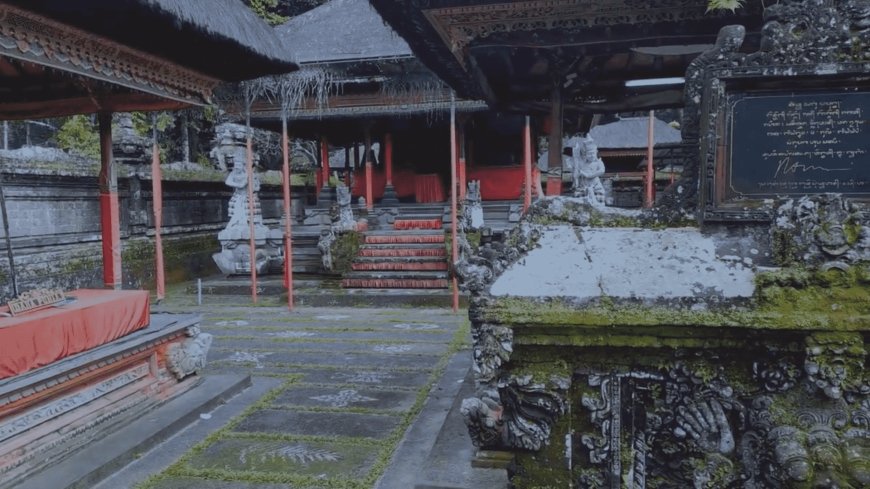
Inside of Hyang Api Temple (Source: Pujangga Nagari Nusantara Youtube Channel)
Hyang Api Temple is linked to the journey of Rsi Markandhya in his efforts to develop the concept of Siwa's religious teachings (Tripaksashakti) in Bali during his time. This is evident in the temple's location in the Munduk Gunung Lebah area, which was once the sacred pilgrimage route for dharma yatra and tirta yatra conducted by Rsi Markandhya and his followers known as Wong Aga. In this area, there are also Luhuring Akasa Temple as the abode of Lord Shiva and Gunung Gempal Temple as the abode of Lord Vishnu, both located in the Yeh Tengah Traditional Village.
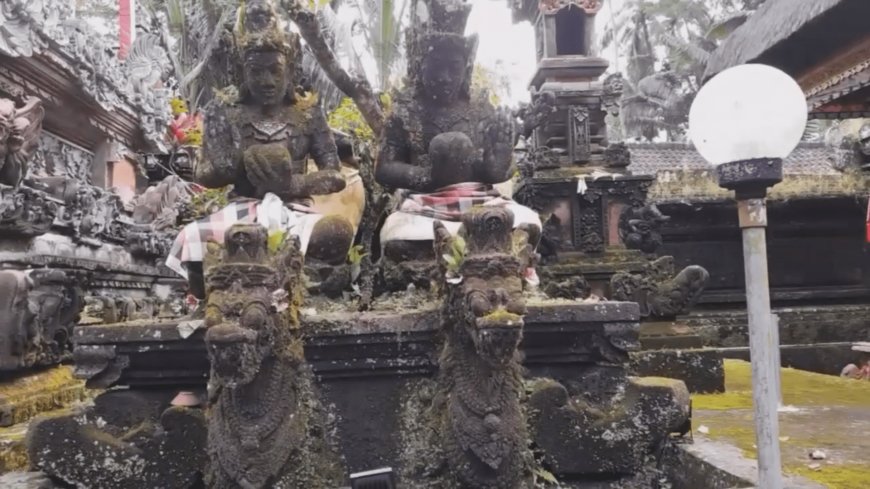
Statue at Hyang Api Temple (Source: Pujangga Nagari Nusantara Youtube Channel)
Aside from serving as a place of worship for Ida Sang Hyang Widhi Wasa, especially in the form of Lord Brahma, Hyang Api Temple is often utilized by its devotees (pemedek) to seek blessings and prosperity for their livestock and pets (satwa sato, satwa wawalungan, satwa paksi, satwa wina, and others), and also for supporting the agrarian activities of the Hindu community across Bali.
Another unique aspect of Hyang Api Temple is the Aci Keburan ceremony, where male roosters are pitted against each other as an offering (punagi) for the well-being and success of the livestock. The Aci Keburan tradition at Hyang Api Temple begins on the Kuningan holiday and lasts for 42 days, concluding on the Saturday of Kliwon Krukut (Tumpek Krukut), with the ceremony being held every five days during this period. This event can feature up to 200 pairs of combatants over 5-6 hours, from morning until 10:00 AM, taking place in the Madya Mandala in the Central Court.
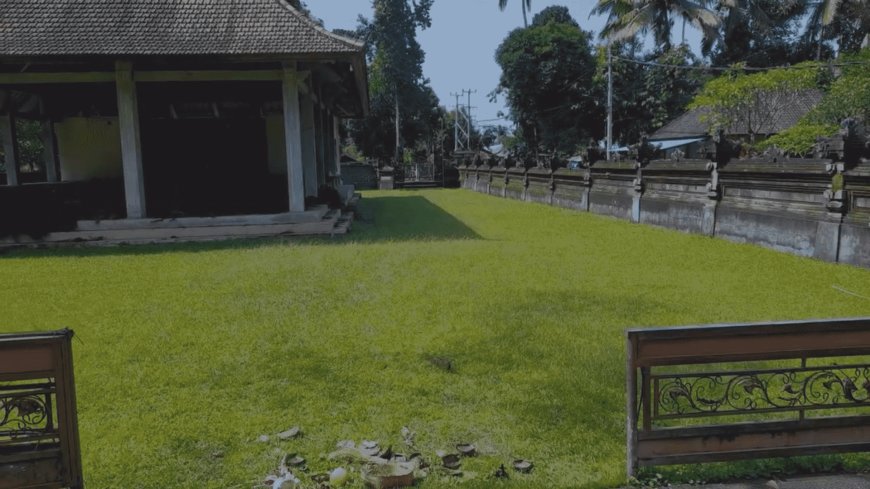
Location of the Aci Keburan (Source: Pujangga Nagari Nusantara Youtube Channel)
Aci Keburan differs from the typical cockfighting (tajen) as it doesn't involve betting (metoh) and follows distinct regulations from tajen. Instead of placing bets, Aci Keburan serves as an offering and worship to fulfill vows (naur, punagi, sesaudan, sesangi) at Hyang Api Temple. Aci Keburan is a tribute to the deity Agni at Hyang Api Temple, not an act of gambling or an offering to Bhuta Kala.
The participants of Aci Keburan are married couples who come as devotees (pemedek) to present their offerings and fulfill vows to Lord Agni, Brahma, at Hyang Api Temple. The husbands bring two or more roosters for the contest. The worship session concludes with prayers in front of the Apit Surang shrine (or called pelinggih), accompanied by offerings of banten. At the moment when the husband presents Aci Keburan, the wife offers banten suwinih along with the already-cooked livestocks.
There are various meanings embedded in the execution of the Aci Keburan tradition at Hyang Api Temple for the entire Hindu community in Bali. This tradition is exclusive to Hyang Api Temple and is proven to be faithfully observed and preserved by the Hindu community, as evident from the ceremonies attended by hundreds of devotees from all over Bali.
Hyang Api Temple holds significant meaning, evident in several aspects. First, in terms of education and religious rituals, the temple imparts values that should be practiced in our daily lives. Second, there are socio-cultural values, where Hindus believe in the agricultural blessings manifested through prayers for the fertility of fields and livestock. Third, there are ethical values, reflected in the proper attire and speech when visiting Hyang Api Temple.
Furthermore, the Aci Keburan tradition holds essential meaning for Hindus. For instance, the community's belief and trust in this tradition are reflected in its philosophical values. Equally important is the spirit of mutual cooperation in the preparation and execution of the Aci Keburan ceremony, demonstrating the community's ethos of working together.
By: Hyang Api Temple ILS Team



